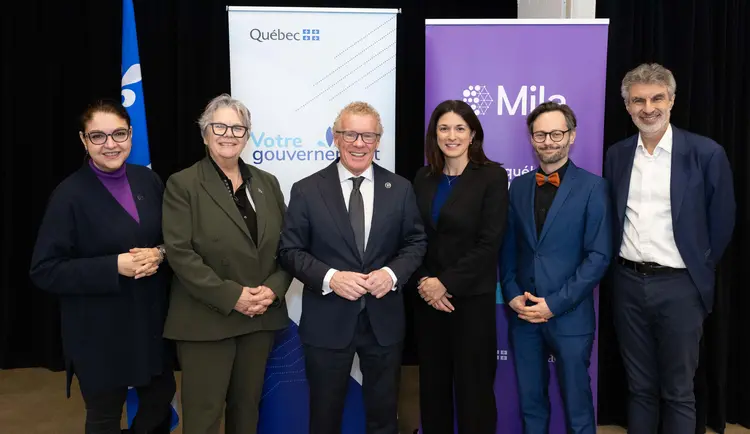
We recently had the opportunity to hear from Mila alumni Desislava Aleksandrova, now a machine learning developer at CBC/Radio-Canada who works on NLP for a digital platform that leverages CBC and Radio-Canada content.
Tell us about your academic and professional path.
After moving from Bulgaria to Montréal in my late twenties, I started taking French lessons (offered for free to immigrants) while doing freelance work as a web project manager. The pursuit of more advanced language skills made me sign up for an undergrad program at Université de Montréal where I came across linguistics for the first time. Two years later, I was starting graduate school in computational linguistics which set me on the course to the field of natural language processing (NLP).
Today, I’m a machine learning developer at CBC/Radio-Canada where I do NLP work for Mauril, a free digital platform leveraging content from CBC and Radio-Canada to help users learn English and French.
How did your interest in AI come to be? What first drew you in?
In the course of my masters in computational linguistics, it gradually became clear that working with language, especially at scale, requires statistical methods and machine learning. So during the writing of my thesis, I decided to audit Ioannis Mitliagkas’s class in the foundations of machine learning only to get hooked immediately. I had to do a D.E.S.S. at Mila if I wanted to acquire the essential knowledge and skills for a career in NLP.
In the face of this whole new (to me) multidisciplinary field, I had only one advantage: it was clear what I was going to use it for. Suddenly, through the lens of language processing, subjects I had limited grasp of, such as calculus and statistics, started to make sense. Programming gave me the tools required to implement ideas and to do empirical work.
Is there a specific topic that you wish to go into more in depth? What are you working on now?
Developing NLP tools designed to assist humans has underlined the importance of model interpretability and evaluation for their adoption in actual workflows. When domain experts are interacting with a model’s predictions, they need to know at least two things: i) how often is this model going to be right; and ii) the reasoning behind its decisions. While the questions are trivial, the answers are anything but.
The release of powerful large language models (LLMs) has reoriented the work of many a team, including mine, on tasks like text summarization and text simplification. Our focus has shifted towards the evaluation of a model’s output using human-interpretable metrics grounded in linguistics and corpus statistics able to provide a meaningful, actionable overview of the generated text’s quality.
Tell us a bit about your time at Mila.
My time at Mila started and ended fully remote, due to the pandemic. In hindsight, it was a blessing in disguise for me as I could use the extra time to fill the many gaps in my knowledge and get the most out of the program. It was particularly useful to get all lectures recorded and be able to go over some of the details at your own pace. I’ll be forever grateful to all instructors and teaching assistants for their availability, flexibility and for the time they put in answering everyone’s questions.
What advice would you give to new Mila students?
When in grad school, you don’t get to punch out after eight hours of work or at the end of the week. Work you need to do plus extra work you could do is always more than what is physically possible. My advice is to embrace it, as it is a sort of endurance training that makes everything afterwards feel easier. It is also a period during which you invest in yourself, so more than ever, you don’t want to be stingy.
What is the biggest challenge that you think AI faces today?
That would be hype and business opportunism. While I have no doubt that AI researchers will continue to advance the field and solve the many challenges of tomorrow, I worry about the way some companies are trying to leverage AI’s promise and popularity. Appending the acronym to every brand name and product there is to maximize profits would only lead to fatigue and disillusionment for the general public.
What are you looking forward to as AI continues to develop?
I’m hoping to see more initiatives at scale focused on AI literacy, as a tool is only as good as our ability to use it. Educating people about AI is not unlike educating them about the coronavirus during the recent pandemic. In addition to providing comprehensible information on a complex subject, educators will need to constantly ease fears and debunk myths while keeping an eye on all the new variants of the rapidly evolving AI ecosystem.





